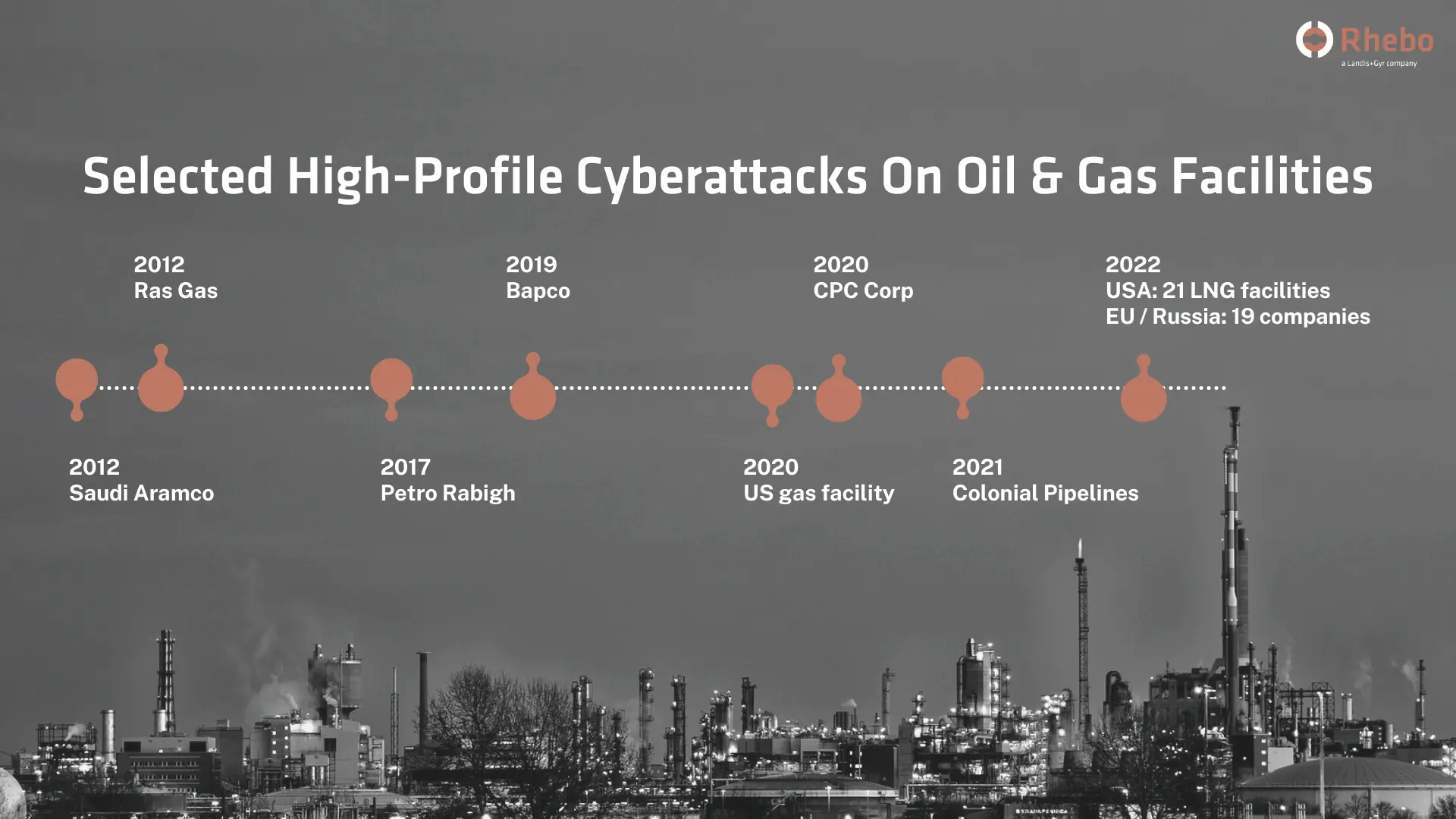Securing oil and gas operations against cyber terrorism and criminality
In the oil and gas sector, thousands of onshore and offshore production facilities, hundreds of thousands of gas pipelines, numerous transfer and compressor stations, storage facilities as well as control and measurement systems must be protected against disruptions every day. As process automation advances, the attack surface is increasingly shifting from the physical space to the digital.
According to the World Economic Forum's Cyber Resilience in the Oil & Gas Industry (2021) report, attacks on OT systems increased by more than 30 percent between 2018 and 2019. Past incidents at Saudi Aramco, Petro Rabigh, CPC Corp. and Colonial Pipeline, among others, highlight the importance of greater cyber resilience. At the same time, the sector is struggling with a lack of skilled personnel to ensure the security of its operational technology (OT), while regulators are expanding requirements for plant and distribution system operators.
